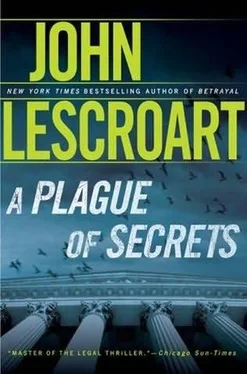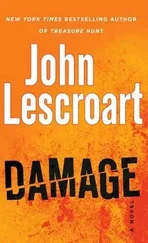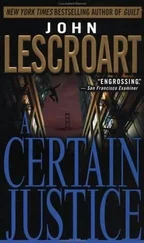“What do you need?”
“I need to know what you and your coworkers know.”
“Like what?”
“I don’t know specifically, you see. But certainly clients who might have been having a hard time paying, or maybe were making trouble for Dylan some other way. Competitors, people threatening to bust you. Come on, Eugenio, you know. You’ve been doing this. You don’t run a ten-grand-a-month drug business and not have some problems.”
Eugenio turned halfway around to check the door. When he came back to Hunt, again he shook his head. “No.”
Hunt smiled. “I thought we’d been over that, Eugenio. ‘No’ is not the right answer. ‘No’ means you and your guys start going downtown.”
“But they say it wasn’t about the weed. They didn’t steal the weed Dylan had on him.”
“There you go. ‘They.’ ‘They’ is not ‘she.’ So who is ‘they’?”
The highly strung manager fidgeted on his barrel. “I don’t mean ‘they’ like that.”
“So how did you mean it?”
“You know, like a figure of speech.”
“Okay. But let me tell you something. The more we’re looking at this, the more we’re convinced that it is, in fact, about the weed. Maya thinks it’s about the weed, since it’s definitely not about her. So you see where we’re coming from. We’re running out of time.”
“Yeah, but I don’t know any names.”
Hunt broke a frigid smile. “Well, that’s where you’re in luck. Because it turns out we do have names, a whole list of them. We just don’t know what kind of relationships some of these people had with Dylan. We need to talk to you some more and other staff members who were part of this thing.”
“Nobody was part of it. Nobody sold or handled anything except Dylan.”
Hunt leaned back in his chair. “I believe you, Eugenio. But we’re not talking sales. We’re talking cooperation and payoff. You guys knew what Dylan was doing and you helped him do it, and in exchange he paid you under the table, probably pretty well. Now, I know this and you know it, but it hasn’t been the subject of much police concern so far because they’ve been thinking about Maya and murder. So up to now you’re all under the radar. And the really good news here is that talking to me or my colleagues isn’t going to get you in trouble. But if the cops come down here and get involved, that’s all going to change.” Hunt came forward. “Is there something that’s unclear about this to you? This is a great deal for you guys, I promise.”
Eugenio tattooed out a rhythm on the edge of the barrel. “Do you have that list with you?” he asked. “I could look at it, see if any names ring a bell.”
At a few minutes past eight that night Treya and Abe Glitsky were standing over the sink, doing the dinner dishes-Abe washing, Treya drying-in their small kitchen. They had a dishwasher, but it had gone on the blink shortly after Zachary had gone into the hospital, and they’d just never gotten around to fixing it.
Now it was beginning to look as though that might never happen. The simple rhythm of handling the dishes-rinsing, handing the plates and cups and silverware to your partner to dry, talking all the while-had brought to them both an unspoken comfort and even a kind of intimacy that had somehow kick-started their communication during those darkest days when Treya sometimes thought Abe would never really talk again.
Sometime during that crisis time with Zachary, Treya had also instigated a practice she called Parent Savings Time, or PST, and tonight she had put it into practice for the first time in a couple of weeks. The idea, she admitted, was fiendishly simple, and perhaps even inlaid with a tiny element of cruelty. But kids could be such a pain sometimes-even though of course you always loved them-that she didn’t feel too guilty laying some payback on them for their own cruel ways.
PST involved going around the house and setting the clocks an hour, or even two hours, ahead. Then, after dinner, you’d look up with surprise, and say, “Oh, my gosh, where has the time gone? It’s bedtime already.” And you whisk them off to their slumbers.
Now Treya took a dish from the drying tray and began wiping it down. “So what did Diz say?”
“He said it wasn’t Schiff’s finest moment.”
“So what’s going to happen?”
“Nothing. Diz says that the Levon count might not even get to the jury.”
“Wow. How often does that happen?”
“Not too. Normally you go for a double one eight seven, if the second one’s squirrelly, they don’t file it. Or maybe it gets dismissed at prelim, but never in the middle of a trial. Still, Diz is talking about a motion to dismiss as soon as Stier rests. I can’t imagine Braun granting it, but if she did, it would be pretty huge for Diz.” He paused. “It wouldn’t be so huge for me.”
“You? What do you have to do with it?”
“Well, though you might not know it to look at me, especially the last few months, in theory I run the homicide detail. Which means I have some input on what we bring to the DA. Or not. At least where there’s a question.”
“You’re saying there was a question here?”
“I thought there might be when Debra first went to Glass. But I just couldn’t seem to stay focused back then.”
“Gee, Abe. I wonder why that was.”
Glitsky put his sponge inside a drinking glass and turned it absently around the rim. “The reason doesn’t really matter, Trey.”
“No, I know. God forbid you have a legitimate excuse or, worse, use one.”
“I don’t need an excuse. I take full responsibility.”
“You? You’re kidding.”
He handed her the rinsed glass. “Quit busting my chops, woman, would you?”
“I’m not. I’m teasing you.”
“I’m laughing. See me laughing.”
She put down the glass, put a finger into his belt, and turned him toward her. “Kiss me.”
“My hands are all wet.”
“I don’t care. Kiss me.”
After about thirty seconds he said, “Are we going to finish these dishes?”
“I doubt it,” she said. “At least not right now.”
Wet hair wrapped in a towel, wearing a pale yellow terry-cloth robe, Treya came out into their living room where Abe, in black flannel pajamas, sat on the couch, hunched over a couple of stacks of papers on the coffee table. “Well, look at this,” she said.
Shooting her a false glare. “You starting again with me?”
She smiled down at him. “You want me to?”
He patted the couch and moved over an inch or two.
She sat down. “Finding anything?”
Shrugging, he turned a page over, laid it facedown on the second pile. “That’s the problem.” Another page. And another. “Diz said it was about the blood, and he might be right.”
“What about it?”
“There isn’t any. Not on Maya’s clothes, not in her house. Nowhere.”
“Couldn’t she have just ditched them?”
Abe put his current page down and sat back on the couch. “Let’s see if this flies for you. She kills Levon in a pretty spectacularly bloody way. Spends a few minutes cleaning up, running water in the sink, no doubt splashing, and blood dripping off the table onto the floor like a few inches behind her.”
“Okay.”
“Okay, first thing, we know she’s got some blood on her.”
“We do?”
“Got to, Trey. No way with all that splashing front and back can she avoid it. So from there we’ve got two possible scenarios. One, she doesn’t see any blood and just goes from Levon’s to pick up the kids and then goes home with them. We’ve got a timeline for her somewhere in here”-he pointed to the papers in front of them-“that shows her actions from picking up the kids until the next morning. Her story, anyway, but corroborated by her husband and their housekeeper before anybody thought it was an issue. So I’m tempted to believe it. She didn’t go out.”
Читать дальше












